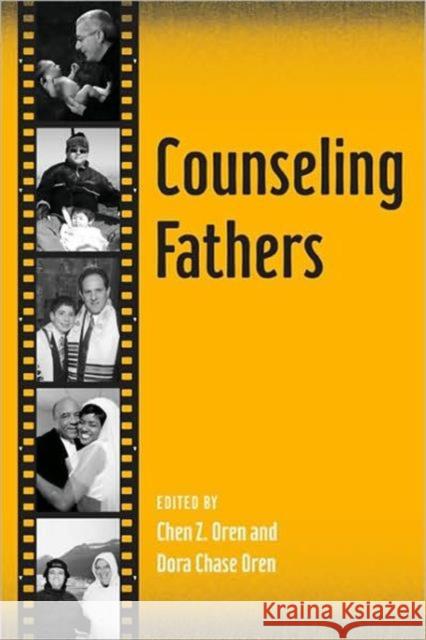Counseling Fathers » książka
Counseling Fathers
ISBN-13: 9780415988643 / Angielski / Miękka / 2009 / 344 str.
Counseling Fathers
ISBN-13: 9780415988643 / Angielski / Miękka / 2009 / 344 str.
(netto: 181,13 VAT: 5%)
Najniższa cena z 30 dni: 178,95
ok. 16-18 dni roboczych.
Darmowa dostawa!
Men do not often come for counseling because they are having difficulties with being a father, but many of the presenting problems and reasons for seeking help can be related to the roles and responsibilities of fathering. The dramatic shift in societal expectations of being a father can often leave men confused as they navigate conflicting views, demands, and responsibilities. Counseling Fathers is designed to bridge the gap between fathers and professional helpers. This book provides the mental health practitioners with a guide for working with fathers in therapy, whether the issues of fathering are at the center of the discussions or in the background. The organization of the book speaks to the variety of today's fathers and the issues that they face. Part I provides an historical overview of the fathering movement, a strength-based approach to working with fathers, and an assessment paradigm using gender role conflict theory. Part II takes a cross-cultural approach, with a series of chapters that look at counseling with Latino, Asian, Black, and Caucasian fathers. Part III looks at specific populations of fathers, including first time fathers, teen fathers, stay-at-home fathers, gay fathers, and older fathers. Counseling Fathers provides the most up-to-date and comprehensive resource for family and individual practitioners who work with men who father.
Men do not often enter into counseling or therapy because they are having difficulties with being a father, but many of the presenting problems and self-described reasons for seeking help can be related to the roles and responsibilities of parenting. There are different expectations associated with being a father today than in previous generations, and now men are often faced with conflicting views, roles, and responsibilities.
This book provides the mental health practitioner with a guide for working with fathers in therapy, whether the issues of parenting are at the center of the discusisons or in the background. The organization of the book speaks to the variety of today's fathers and the issues that they face. A first section provides an introduction, an historical overview of gender role conflict theory and a general strengths-based, positive psycholgy approach to working with fathers. Section II looks at specific populations of fathers, including first time fathers, young fathers, stay-at-home-dads, gay fathers and older farthers. Section III takes a cross-cultural approach, with a series of chapters that look at counseling with Caucasian, Latino, Black and Asian fathers. Counseling Fathers will provide the most up to date and comprehensive resource for family and individual practitioners who work with men.











